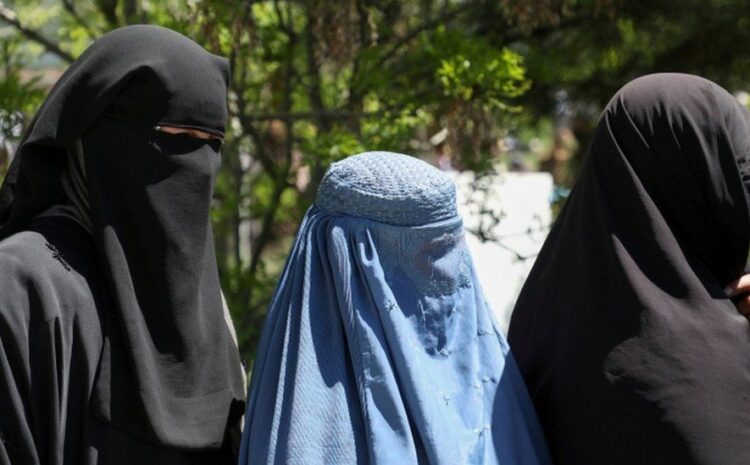
IMAGE SOURCE REUTERS
“It’s a very temporary procedure,” spokesman Zabihullah Mujahid said.
The Taliban, which enforced a strict version of Islamic law when they ran Afghanistan before 2001, retook full control of the country nine days ago.
The UN has highlighted “credible” reports of abuses by the Taliban, notably restrictions on women.
UN Human Rights High Commissioner Michelle Bachelet said on Tuesday that women’s rights were a “fundamental red line”.
In his news conference in Kabul on Tuesday, the Taliban spokesman also addressed the US-led evacuation from the capital, Kabul.
- Afghans should not try to go to the airport, Mr Mujahid said, citing the chaotic situation there
- The US should stop “encouraging” them to leave as Afghanistan needs their talents, he added
- The UK, France and Germany have called for an extension to the 31 August deadline set by the US to leave Afghanistan
- However UK Defence Secretary Ben Wallace has admitted that President Joe Biden is unlikely to extend the deadline.
US troops control Kabul airport from where some 58,700 people have been evacuated so far. Mr Mujahid reaffirmed the Taliban’s position that the operation should end by 31 August.
 IMAGE SOURCE GETTY IMAGES
IMAGE SOURCE GETTY IMAGESOn the situation of Afghan women, he said that any restrictions would be short-lived.
“Our security forces are not trained (in) how to deal with women – how to speak to women (for) some of them,” Mr Mujahid said. “Until we have full security in place… we ask women to stay home.”
As well as expressing concern over women’s rights, Ms Bachelet also said she had received reports of the recruitment of child soldiers and summary executions by the Taliban.
She was speaking at an emergency meeting of the UN Human Rights Council in Geneva. Afterwards, the council endorsed a resolution affirming its “unwavering commitment” to the rights of women and girls.
But the resolution fell short of what many human rights groups had called for – in particular, it did not recommend the appointment of a special UN investigator for Afghanistan.
President Biden is holding talks with leaders of the other G7 leading industrial countries on Tuesday.
Thousands of people including British citizens, other foreign nationals and Afghans eligible for resettlement abroad are still waiting to get out.
Khalid, an Afghan who worked as an interpreter for the British Army, told the BBC about his relief – tinged with sadness – at leaving the country. He and his family are now in the north of England.
“When you leave your country, your people, especially your sister, your brothers, your mother, your everyone… because of those things I was sad, but now I am happy in the UK,” he said.
Even before the Taliban retook control, more than 550,000 people had been forced to flee their homes this year due to fighting, according to the UNHCR, the UN refugee agency.
If confirmed, it would be the highest-level meeting so far between the US and the Taliban since the fall of Kabul and the removal of the US-backed government.
